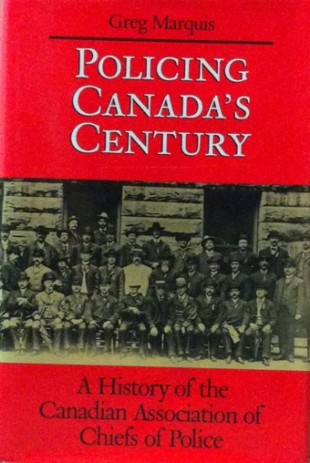by Greg Marquis. Published with the University of Toronto Press, 1993. $31.50; student price $15.00.
Although the RCMP is often identified as a national symbol, Canadian police history is largely the story of municipal and provincial police forces which have had little influence on popular culture but considerable impact on the lives of Canadians. Municipal police forces predate the Mounties by a generation and first began to articulate their concerns through the Chief Constables’ Association of Canada (CCAC) in 1905. The development of this little-studied, non-governmental organization, known since the 1950’s as the Canadian Association of Chiefs of Police (CACP), has been a crucial part of our criminal-justice history.The CACP/CCAC story mirrors the social and intellectual history of policing in twentieth-century Canada. Beginning with an overview of nineteenth-century policing and the conditions that led to the establishment of this first police lobby, Policing Canada’s Century is a chronicle of police reaction to social change and the rise of new institutions, reform movements, and methods of managing the population. The biggest period of growth was from 1961 to 1975, coinciding with the maturation of the welfare state, when the number of police officers in relation to population increased by more than 50 per cent. The social change and legal reforms of the 1960s and 1970s caused CACP to reorganize and to found a permanent secretariat in Ottawa. This book is both a history of Canada’s major police professional association and an examination of twentieth-century police administration issues.


